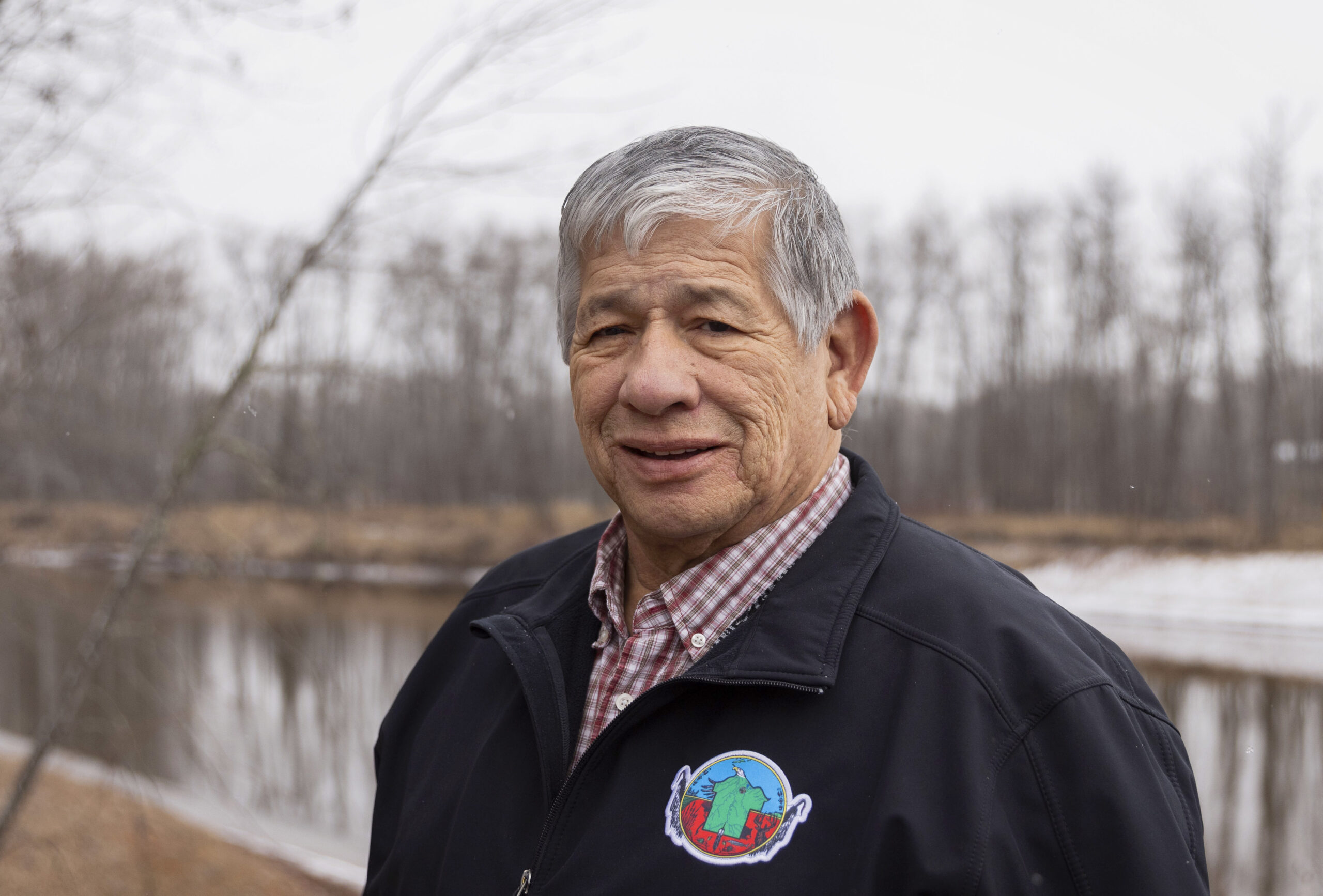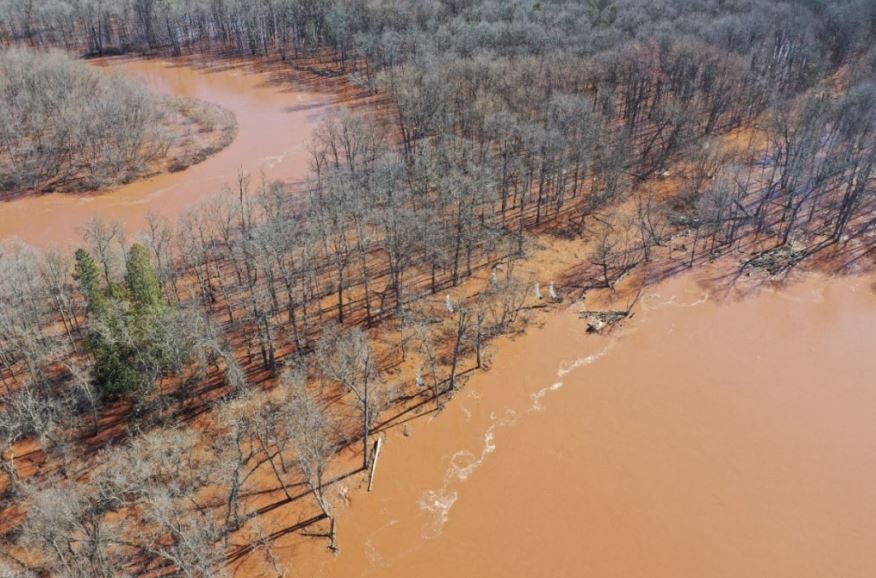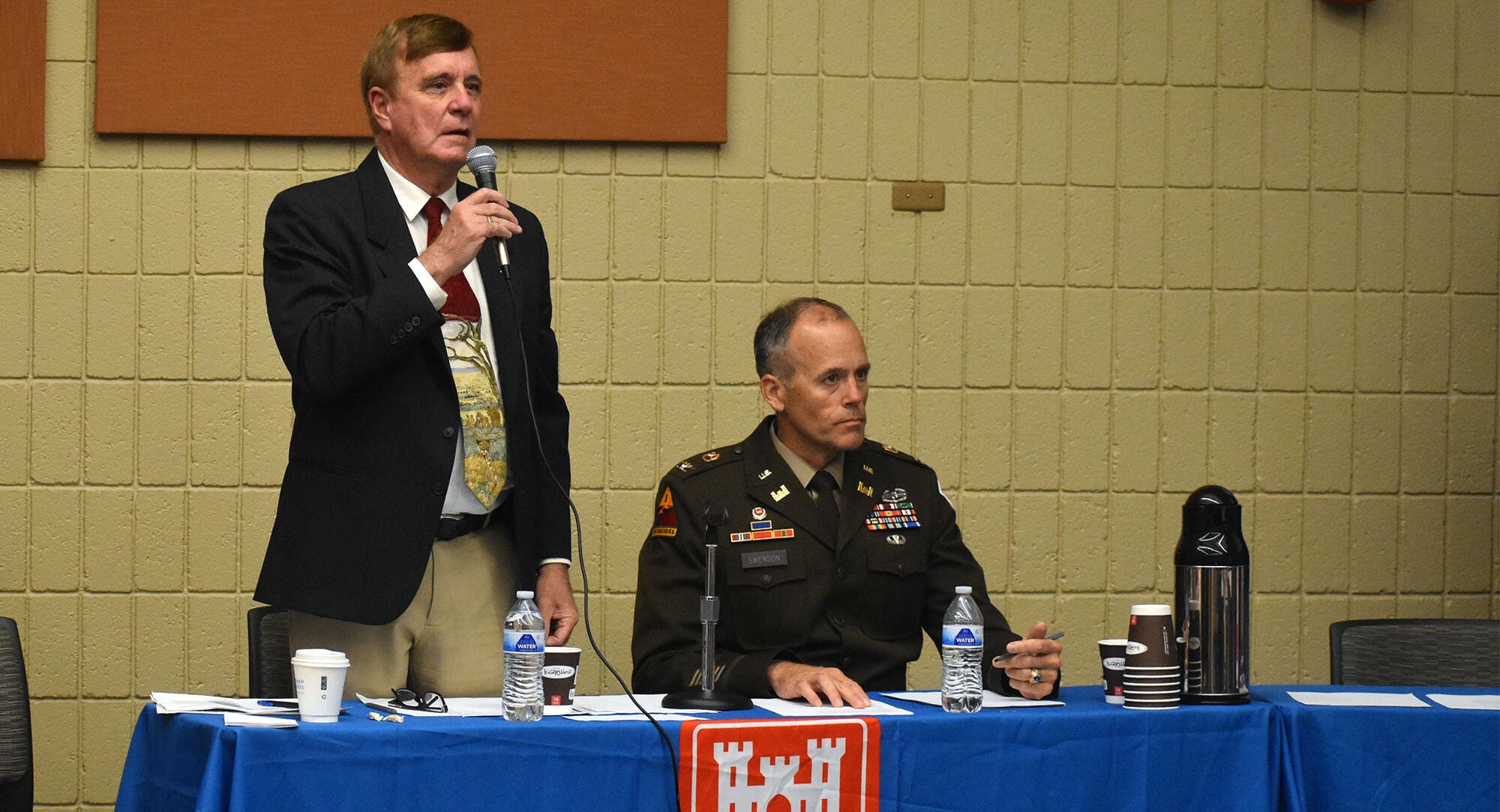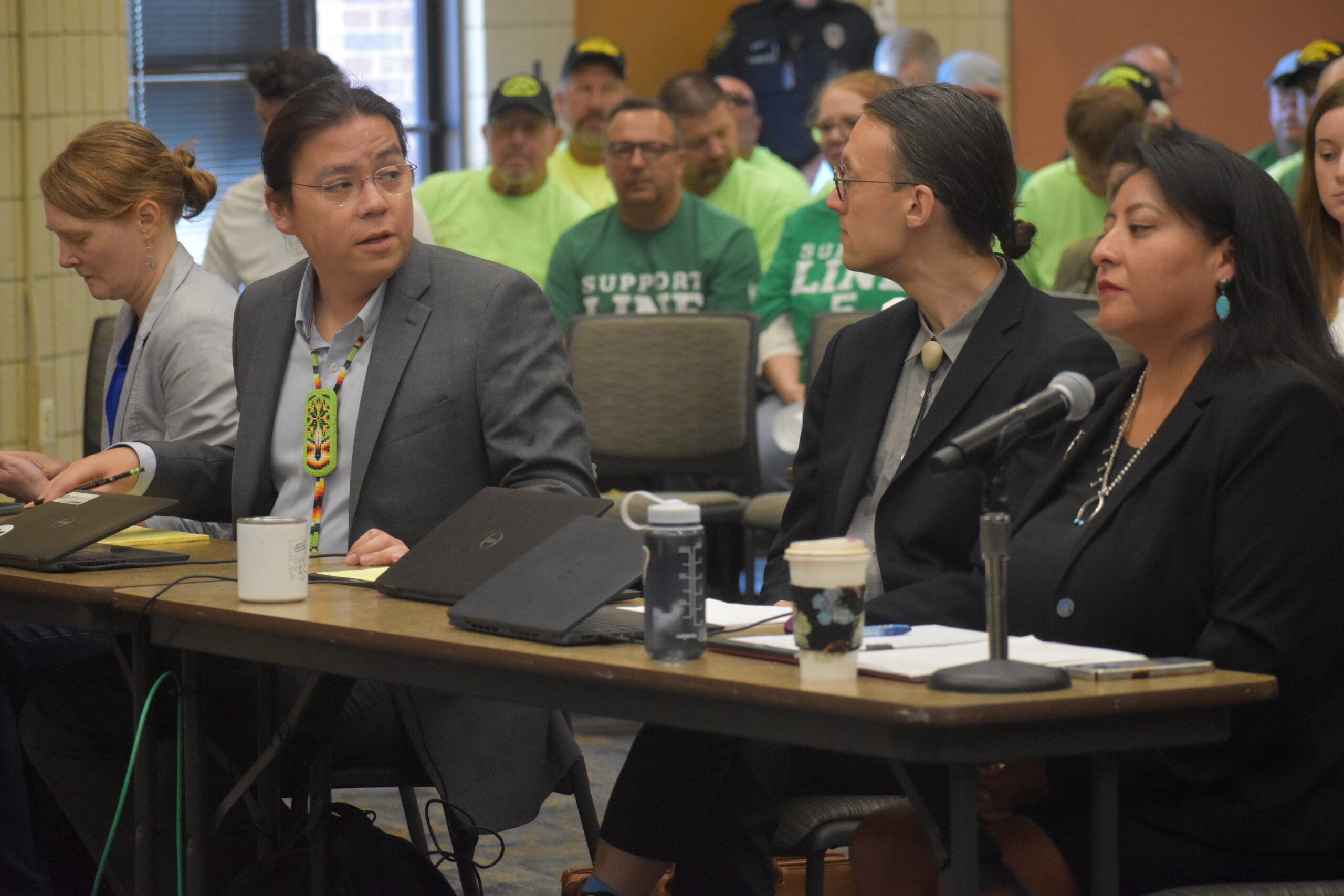The Biden administration is urging a federal appeals court to reverse a lower court order that would shut down an oil and gas pipeline crossing the Bad River tribe’s reservation within three years.
Attorneys with the U.S. Department of Justice weighed in for the first time as the northern Wisconsin tribe and Canadian energy firm Enbridge have been locked in a years-long legal battle over the fate of the company’s Line 5 pipeline. In 2019, Bad River sued Enbridge in federal court to shut down and remove the pipeline from its reservation.
Last year, U.S. District Judge William Conley ordered the company to pay $5.1 million for trespassing where its pipeline easements expired and shut down Line 5 there by mid-2026. Both Enbridge and Bad River appealed the ruling to the 7th Circuit Court of Appeals.
In a brief made public Wednesday, the federal government argued Conley was right to find that Enbridge has been trespassing on tribal lands for more than 10 years. Even so, U.S. attorneys said the case should be sent back for the lower court to reconsider both the tribe’s treaty rights and the consequences of shutting down the pipeline on relations between the U.S. and Canada.
“The operation of that pipeline has implications for the trade and diplomatic relationship between the two countries, as well as economic and energy-supply implications,” attorneys wrote in a court filing.
U.S. attorneys also argued a federal judge was wrong in awarding only $5 million to the tribe for Enbridge’s trespass. They note the company has made more than $1 billion in profits tied to Line 5 since its right-of-way easements expired in 2013 on a dozen parcels of the tribe’s land. They say the award does nothing to discourage trespassing and encourages delaying the pipeline’s relocation.

In a statement, Bad River Tribal Chair Robert Blanchard said tribal leaders are grateful the Biden administration urged against Enbridge profiting from its trespass on tribal lands.
“But we are disappointed that the U.S. has not unequivocally called for an immediate end to Enbridge’s ongoing trespass, as justice and the law demand,” Blanchard said. “Enbridge should be required to promptly leave our Reservation, just like other companies that have trespassed on tribal land.”
A group of 30 tribal nations, including Bad River, have urged President Joe Biden and his administration to support the tribe and treaty rights in the case.
Juli Kellner, an Enbridge spokesperson, said in a statement the company has valid easements under a 1992 agreement to operate Line 5 on the vast majority of land where it crosses the reservation. She said shutting down Line 5 would violate a 1977 treaty between the U.S. and Canada, adding it would negatively impact businesses, communities and millions of people who rely on the pipeline.
“Enbridge continues to work diligently to find an equitable and amicable solution with the Bad River Band that recognizes the Band’s sovereignty and addresses their concerns while also allowing the continued delivery of vital energy that millions of people rely on every day throughout the Great Lakes region,” Kellner said.
Enbridge recently proposed an $80 million settlement to Bad River, which the tribe rejected. The pipeline carries up to 23 million gallons of oil and natural gas liquids per day from Superior across northern Wisconsin and Michigan to Sarnia, Ontario.
News with a little more humanity
WPR’s “Wisconsin Today” newsletter keeps you connected to the state you love without feeling overwhelmed. No paywall. No agenda. No corporate filter.

Meanwhile, Blanchard also took issue with the Biden administration urging the federal appeals court to reverse Conley’s ruling in favor of the tribe’s nuisance claim, which found erosion near the pipeline poses a significant environmental risk.
“We trust that the appeals court will not strip away the hard-fought protections that we have secured for the Bad River watershed and Lake Superior through this litigation,” Blanchard said. “Line 5 remains an urgent threat, not only to the Band’s fishing and gathering, but also to the health and welfare of our people and our neighbors. We are determined to protect the precious rivers and streams in our watershed, our coastal wetlands and Lake Superior.”
Attorneys with the Biden administration argued the tribe’s nuisance claim can’t be granted because the Pipeline Safety Act governs oversight of pipelines and addresses environmental safety concerns. Even so, they said the tribe has legitimate concerns. They said erosion at a site known as the meander on the Bad River “unquestionably presents serious risks.” Spring flooding last year brought the banks of the river within 11 feet of Line 5 at its closest spot.
Attorneys said the Pipeline and Hazardous Materials Safety Administration within the U.S. Department of Transportation continues to closely monitor the pipeline’s safety.
Enbridge has proposed rerouting the pipeline for 41 miles around the tribe’s reservation. However, the Wisconsin Department of Natural Resources has yet to issue a final environmental impact statement on the project, which is expected to cost around $500 million if built. At the same time, the U.S. Army Corps of Engineers is still drafting its environmental assessment as Enbridge seeks federal permits for the reroute.
Wisconsin Public Radio, © Copyright 2026, Board of Regents of the University of Wisconsin System and Wisconsin Educational Communications Board.




